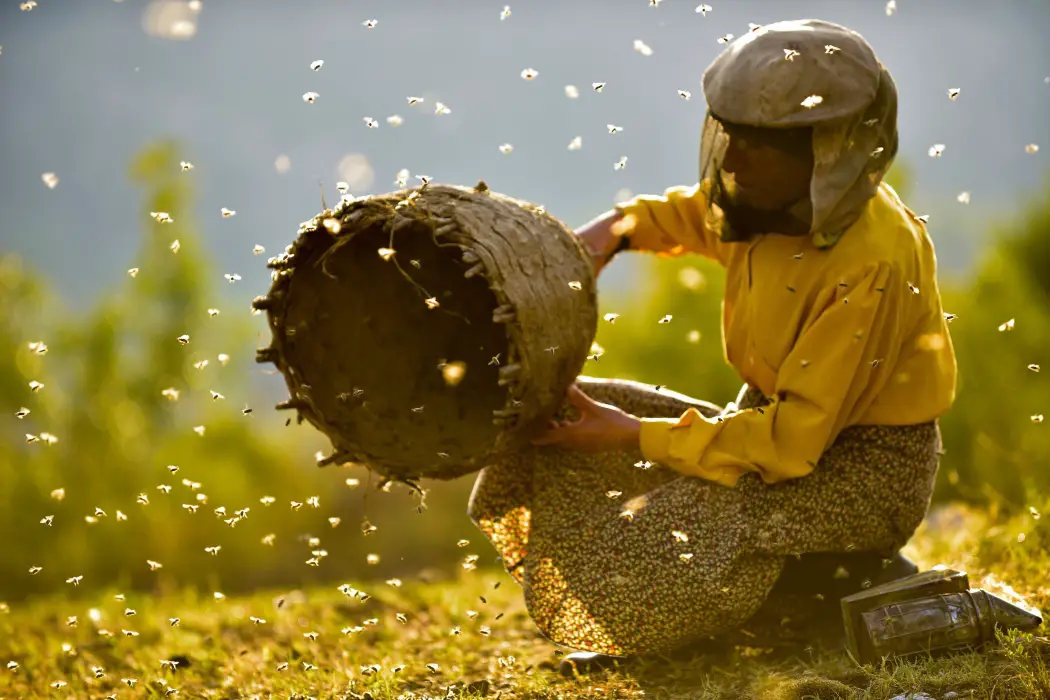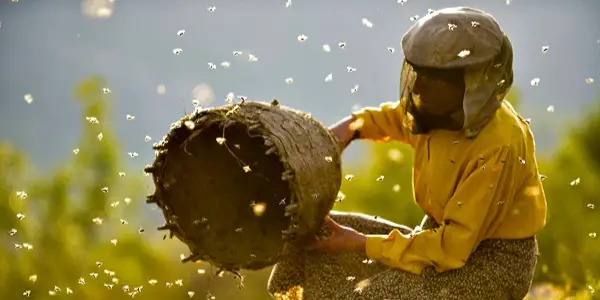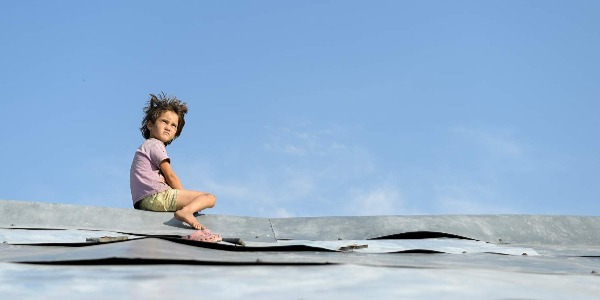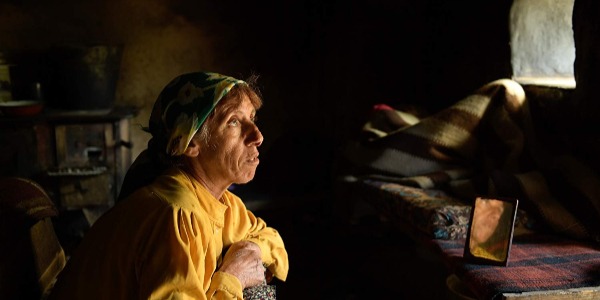HONEYLAND: Crucial & Universal Documentary Filmmaking

Matt is a critic from the UK.
When I first heard about a documentary focused on Macedonian beekeepers, I wasn’t particularly interested. However, since its premiere at Sundance last year, the praise for this film has been incredible. After winning three prizes in Park City, Utah, it went on to become the first ever film nominated for both the Best Documentary and Best International Feature Film at the Academy Awards. With its release in Australia this March, I can finally see what all the fuss is about.
Bees
The documentary follows the day-to-day life of beekeeper Hatidze. She lives in the remote mountainous village of Bekirlija, caring for her bees as well as her elderly mother, Nazife. Her peaceful life is disrupted, at first happily, by the arrival of new neighbours, a family of cattle herders. Hussein, father of this family, becomes increasingly interested in Hatidze’s work with the bees and sets about starting his own beekeeping project.

The film is split into two distinct parts. To begin with we see the work of Hatidze, as she climbs along the perilous edges of the mountain to retrieve the honey; washes and feeds her mother; and heads into Skopje (the capital) to sell her products. It is a calming watch, with the steady camera capturing the gorgeous landscapes of North Macedonia and this most unique of professions. It is a portrait of a peaceful rural life.
With the arrival of the nomadic cattle herders, the camera work is forced to change, with much more use of an unsteady handheld approach. It is no longer still shots of beautiful vistas, but instead we weave in and out of the action, as the energetic children race around. The camera captures fascinating moments in the everyday lives of these people – a fight between children, a cow giving birth, a near-miss whilst playing in the river. It is at this point that the direction of the film takes a turn.
An Ever-changing Project
Oftentimes the greatest documentaries grow out of opportunity and chance. Directors Tamara Kotevska and Ljubomir Stefanov had set out to make a completely different film when they met Hatidze. The arrival of the nomadic family was another such coincidence. This obviously requires a healthy dollop of luck, but it then also requires the documentarians to have the skill to execute it when the opportunity arises. The directors clearly do, choosing the best approach to this ever-changing project.
Honeyland is a fly on the wall documentary, with no voiceover or input from Kotevska and Stefanov in any way. The pair spent a long time with the two families, and this familiarity allows the directors to stay invisible, and allows real reactions from the subjects. It is unrestricted access to a way of life that most of the film’s international audience will never have witnessed and will certainly never experience.

Kotevska and Stefanov, unable to speak Turkish, took their cues when filming from the emotions and actions of their subjects. This focus on visuals continued during the first stages of post-production, as they still did not have clear translations. This technique allows the film to be so incredibly universal, the struggles and the triumphs clear and understandable to anybody.
It means every shot tells a story, and so the film strikes to the very core. Snippets of the translated conversations only add to this, giving great insight into the lives of these people. Whether it’s about their feelings on marriage or children, or mistakes made along the way.
You Help Me, I Help You
As it is so in touch with the reality of the world around us, it cannot help but also touch on the issues facing the earth today. Hatidze has a motto, of taking half of the honey, and then leaving the other half for the bees. You help me, I help you. This transaction continues to be beneficial for all. Hussein however, doesn’t have the same idea, trying to take too much honey much too early in the process. The issues only escalate from there. It is a painful watch as Hussein tries desperately to collect honey for the buyer he works for, in order to raise money for his family. In turn he only causes Hatidze more problems.

Kotesva and Stefanov touch on this continuing issue of the exploitation of natural resources, especially within the capitalist framework. The pressure of capitalist consumerism has even extended up here into rural North Macedonia. At one moment, Hatidze’s mother Nazife describes herself as a tree, unable to move outside and away from the small house they share. Her roots, like her daughter’s, are sewn into the ground around their feet. However, now those roots are being increasingly entangled with those of the capitalist machine. Their old traditions, and their sustainable lives are under threat.
Honeyland: Conclusion
Honeyland proves to be an immensely intimate look at the life of a woman whilst also remaining completely universal. It is a living breathing film, and this means it has it all. The happiness and the hilarity, as well as the arguments and the heartbreak of everyday life across the world. It is also an important timely film in its depiction of the ecological crisis we face. With a little bit of luck, and a lot of skill, Kotevska and Stefanov have managed to find a place for all of this in an 85-minute film, which is just an incredible feat.
What was your favourite of the Oscar-nominated documentaries? Did Honeyland deserve to win the prize? Let us know in the comments below.
Honeyland is currently streaming on Hulu.
Does content like this matter to you?
Become a Member and support film journalism. Unlock access to all of Film Inquiry`s great articles. Join a community of like-minded readers who are passionate about cinema - get access to our private members Network, give back to independent filmmakers, and more.
Matt is a critic from the UK.













